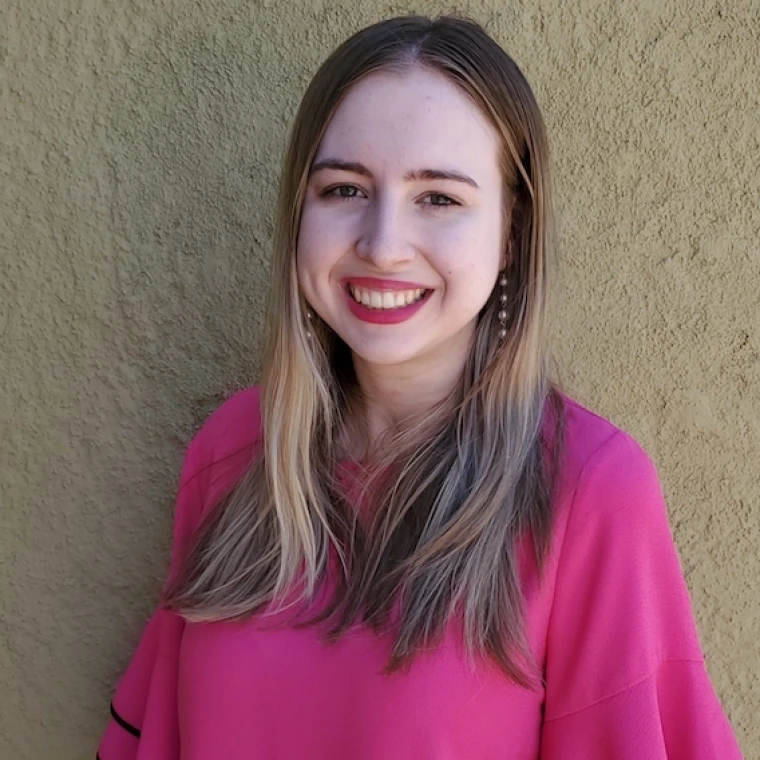Mairead Doery

Emil W. Haury Building, Room 402 (Southwest Archaeology Lab)
About Mairead K. Doery
Mairead K. Doery (formerly Poulin) is a PhD Candidate in the Archaeology program. She is broadly interested in Indigenous and Collaborative/Community-based Archaeology, particularly regarding memory, landscape relations, and iconography. She prioritizes the inclusion of descendant community voices, ontologies, and oral histories in her research, which has spanned from the early Archaic to the late colonial periods of the North American Southwest and Great Basin. She is a graduate of Smith College (AB 2016), and has previously worked at the Williamstown Historical Museum, the Field Museum of Natural History, and Crow Canyon Archaeological Center.
Mairead’s current research combines theoretical approaches from Indigenous Archaeology and American Indian Studies to refine archaeological understandings of movement and place. Her dissertation explores the creation of mobile hunter-gatherer territory and social identity in western Colorado. Challenging prior subsistence-related frameworks, her research systematically incorporates elements of the Great Basin ‘Indigenous archive’ – including oral history and other forms of expression – into a study of Indigenous place-making. Materially, this work focuses on Numic rock art and site distribution, which are documented in conjunction with Ute place-lore and toponyms. Ultimately, this research produces an analytical framework for an Archaeology of Ethnoplace, a systematic approach to examining landscapes, movement, and identity using Indigenous forms of history.
Mairead is also interested in pedagogical practice, particularly in secondary and higher education, and in museum settings. As a teacher and teacher educator, she promotes teaching practices that are evidenced-based, student-centered, and inclusive. She is a graduate of the UArizona Graduate Certificate in College Teaching Methods program, and was the 2022 recipient of the SBS Outstanding Graduate Teaching Associate Award. In her spare time, she is an avid baker, and enjoys spending time with her wife, Aviva, and their two dogs, Ogie and Schuyler.
Selected Publications
Doery, Mairead K. (nd). Blurring Interpretive Boundaries: Re-examining Numic Landscape in West-Central Colorado, USA. Special Edition of Canadian Journal of Archaeology, edited by Natasha Lyons and Andrew Martindale. Solicited.
Doery, Mairead K. (nd). Rethinking Infrastructure: Rock Art, Bear Dance, and Nomadic Strategy in the Historic Ute (Nuuche) World. In Framing Society in the Past: Infrastructure in Archaeological Discourse, edited by Grace Ellis, Carly DeSanto, and Meghan Howey. London: Routledge Press. Under review.
Doery, Mairead K. (nd). Marks on the Land: Spanish and American Inscriptions. In Acoma to Zuni: El Morro, El Malpais, and the Cibola World, edited by Kelley Hays-Gilpin. Santa Fe: SAR Press Popular Archaeology Series. Under review.
Doery, Mairead K. (2022). Accessing the Audience: An Interpretation of Panel Seven at the Chevelon Steps. In Research at Rock Art Ranch, edited by E. Charles Adams. Tucson: Arizona State Museum Archaeological Series. In press.
Courses Taught
Instructor of Record:
ANTH 160A1: World Archaeology
ANTH 197: Introduction to UA and the School of Anthropology
Teaching Assistant/Associate (selected):
ANTH 160A1: World Archaeology
ANTH 160D2: Origins of Human Diversity
ANTH 442/542: Field Training in Archaeology
Projects
School of Anthropology, University of Arizona:
2019-present: Numic Ethnogeography in Western Colorado Project (dissertation research)
2018-present: Picuris Archaeological Project and Collaborative Archaeology Field School
2018-2019: Nomination of El Morro National Monument to the National Register of Historic Places
2017-2018: Nomadic Archaeologies in the Northern Rio Grande Research Project
2015-2019: Homol’ovi Research Project
Others (selected):
2016: Basketmaker Communities Project, Crow Canyon Archaeological Center
2016: Blackfriary Community Heritage and Archaeology Project, Irish Archaeology Field School
Research Interests
Ethnogeography; Collaborative and Community-Based Archaeology; Decolonizing research methods; Iconographic study; Indigenous Theory and Ontology; Memory; Oral History

